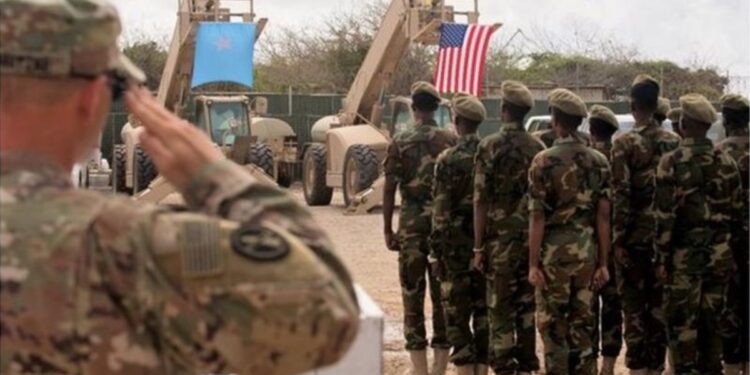(14-05-23) MOGADISHU – Newly disclosed documents have revealed that US Special Operations forces are not required to vet for past human rights violations by the foreign troops they arm and train. The documents, including two sets of directives obtained by The New York Times, raise questions about the actions of Somalia’s elite US-sponsored Special Ops Force, the Danab Brigade, particularly in relation to an incident in July 2019.
In this incident, US troops were present near the village of Shanta Baraako in Lower Shabelle, an al-Shabab stronghold, when two civilians were allegedly killed by Danab soldiers. These events have rekindled discussions on the oversight of proxy forces, like Danab, and their adherence to human rights norms.
“In the fight against terrorism, it’s crucial that we uphold the values we defend,” said Representative Sara Jacobs, Democrat of California, emphasizing the need for tighter rules on proxy forces. “We need to make sure that we are not training abusive units to become even more lethal and fueling the conflict and violence that we’re aiming to solve.”
However, a senior Defense Department official, speaking on the condition of anonymity to The New York Times, asserted that all members of a proxy force were subjected to extensive screening to ensure that they would not attack or spy on American forces. Lt. Col. Cesar Santiago-Santini, a Pentagon spokesman, also stated that the department had found “no verifiable gross violations of human rights” by participants of either proxy force program.
This declaration contrasts with the experiences and narratives of locals in Somalia. “We are caught in the middle of a war we didn’t ask for,” a resident of Lower Shabelle who asked to remain anonymous told Halqabsi News. “We fear the al-Shabab, but sometimes, we also fear those who are supposed to protect us.”
The documents obtained by The New York Times disclosed the complex process of developing a new partner force, which ultimately involves the approval of the secretary of defence and the State Department’s chief of mission in the affected country. However, they do not stipulate the need to consult the secretary of state in Washington.
Critics of the current system argue that these procedures leave room for abuses. “The opacity and mixed messages surrounding the vetting process are concerning,” said Katherine Yon Ebright, a counsel with the Brennan Center for Justice at New York University’s law school. “There is a need for greater transparency and accountability.”
These revelations, and the civilian deaths associated with the Danab Brigade, have increased pressure on both Somali and US authorities to ensure better regulation of proxy forces. As these forces continue to play a crucial role in fighting terrorism, the issue of their oversight remains an urgent and ongoing concern.
© Halqabsi News













